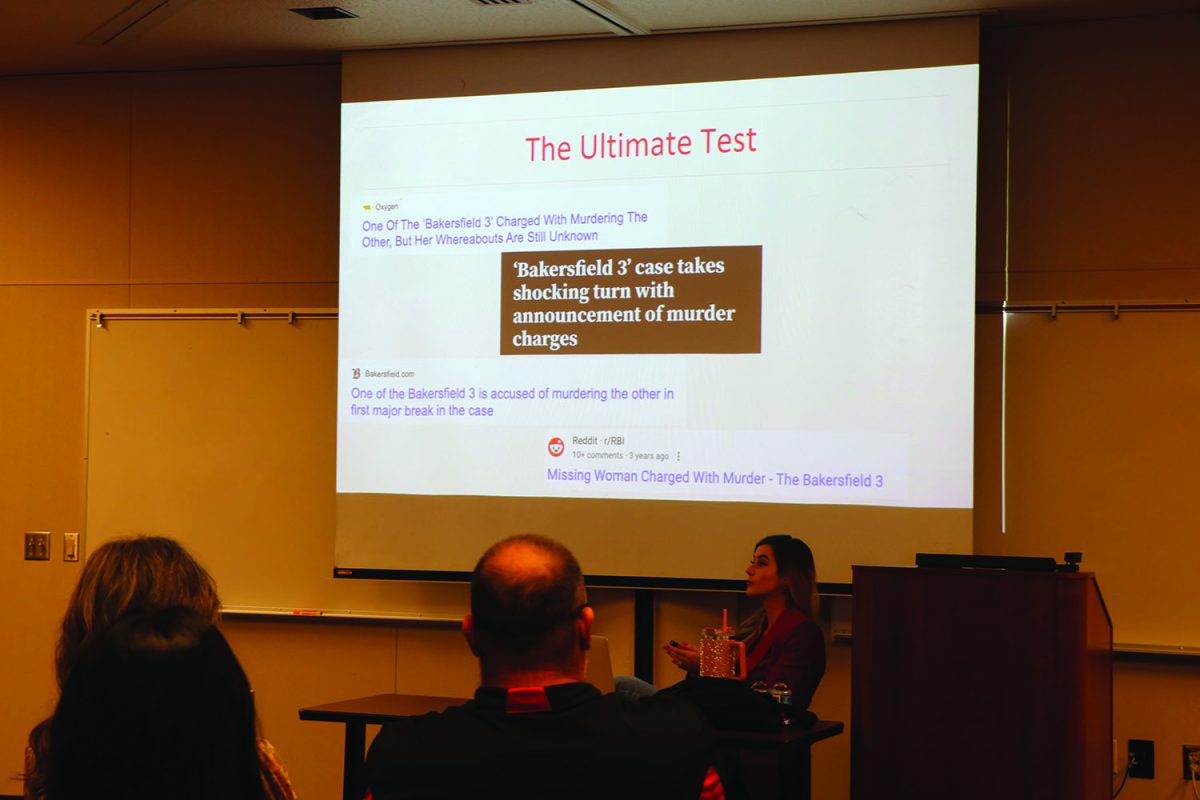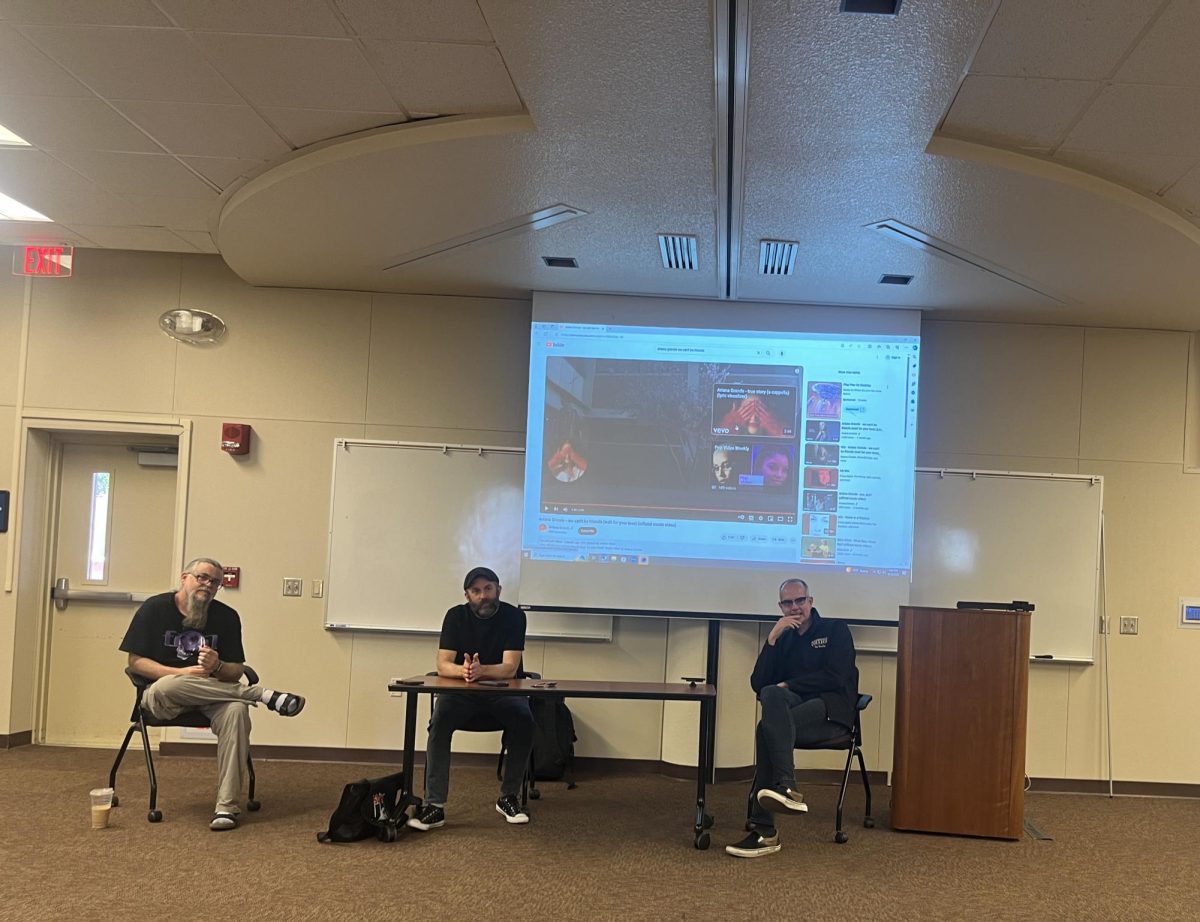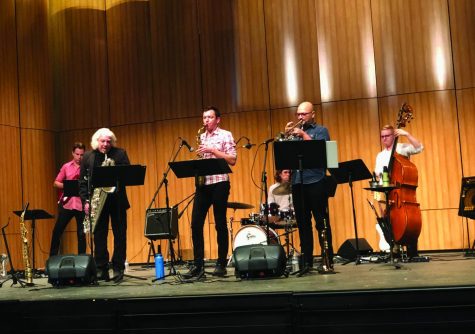Renegade Struggle: How Richard strives for family
March 15, 2019
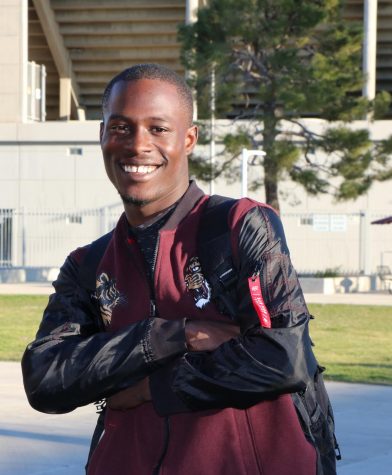
BC student Richard McDowell, 21, shares his experience in a foster home, the Umoja ASTEP program, and what makes him strive for success.
“I remember one day being in there feeling like my worst. Like I’m not able to do anything anymore. But being able to get out of that and being able to strive and just keep striving and stay focus is a wonderful thing.”
BC student Richard McDowell, 21, may have the drive to succeed like every college student but it wasn’t so easy gaining the mindset he has today.
McDowell moved into Bakersfield when he was nine with his mother and sister. There was no father in the house.
Not long after moving into town, McDowell’s uncle came to live with them. One day his mother and uncle got into argument, she was pushed onto his two-year-old sister and his sister ended up with a broken neck. Although his mother lied about how the situation occurred, McDowell and his two sisters were placed into a foster home for four months until his [auntie] came to look after them.
McDowell was 13 during this time in a home with one of his sisters, while the baby was separated in a different home to help recover from her injuries.
“It was very hard for me to see my sisters going through that and seeing my baby sister so hurt.”
During the time, his mother was in jail for a while. After she got out, she started parenting classes to get her kids back. It took six months to get them back.
Seeing his mother be so strong and determined to get them back, and looking after his sisters made him a stronger individual today.
“I saw other kids whose parents didn’t come back for them. It really opens my eyes a lot.”
McDowell recalls he was angry for awhile from being placed in a foster home. He had to move away and stop playing football, but since moving back with his mother, “it was just a great time.” His mother got to be with him for his high school graduation, including his sisters. He is the oldest of five.
Being the first of his family to attend college, McDowell felt like a failure for getting average grades in his first semester at BC.
“You feel like you can’t get up and can’t do it again. You lose all confidence when you fail and don’t have any kind of support system.”
Determined to get the support and motivation to do better in school, he discovered the Umoja ASTEP (African-American Success Through Excellence and Persistence) program on campus.
The Umoja ASTEP is a program that integrates academics, support services, and African-American culture.
“[The program] really changed my life and change my perspective about school.”
ASTEP helped McDowell make plans for his future, be able to help him move forward and not be “running around BC like a chicken with his head cut off.”
They also help him figure out his “whys.”
Why he wanted to be in school, why he wanted to get up in the morning, and why he wanted to finish and get his degree.
But the biggest “why” he figures out was his family.
“I have to get up every day and work hard for them to be something because they are looking up to me.”
McDowell feels it is his duty to show his siblings that it is possible for them to succeed.
“So far I’ve been doing great. I really saw myself come alive here at BC.”
Because of how much of a struggle it was to get passing grades in high school, he expressed that he never thought he was capable of being a good college student. He once had 15 Fs on a report card. So he never expected he would ever pass exams with As and write five-page papers. “Seeing that craft in front of me just opened my eyes. It’s hard for me to pat myself on the back at times because I think how is that possible?”
McDowell said he sees the good path for himself every day. He believes he can do anything now.
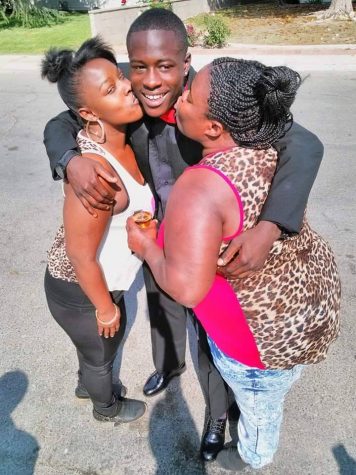
Richard McDowell (middle) with his mother (right) and one of his sisters (left).
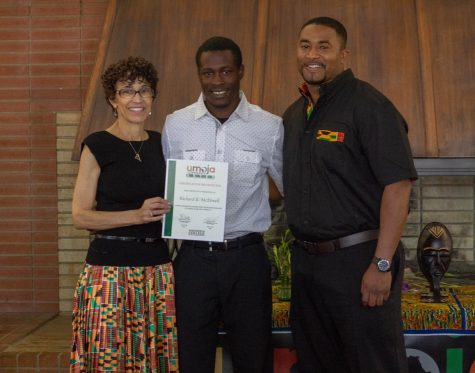
Richard McDowell getting recognition with the Umoja ASTEP (African-American Success Through Excellence and Persistence) program.


